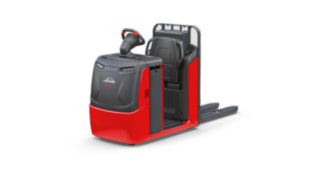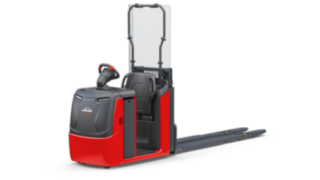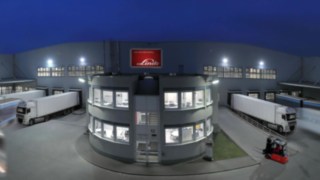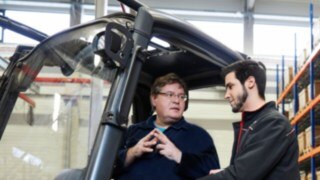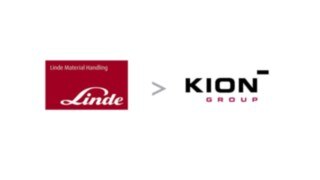Maintenance & Repair
Keeping you on the move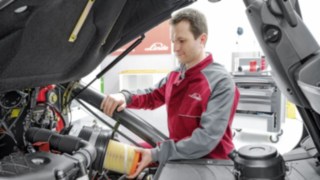
The Linde customer support programme is aimed at keeping your equipment on the move with maximum uptime throughout the life of the equipment. With customer support centres located right across the UK, we are never far away from your business. 1000 factory-trained service engineers operate from these centres and have local knowledge of the truck pools in their areas which is reflected in the parts inventories held in their vans. Our aim is to respond to your needs as quickly as possible with high first-time-fix ratios.
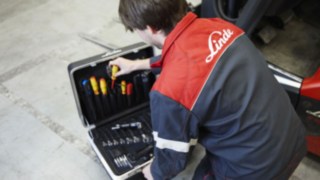
Repair service

Rapid Assistance in Case of Damage, Wear, or Conversion Requirement
We provide fast and reliable support. A call to one of our support centres will aim to get one of our 1,000 factory trained engineers to you within four hours. Equipped with state of the art workshops, access to tyre replacement, computer aided diagnostics to identify faults on trucks quickly and overnight delivery of parts direct to engineers vans can help increase first time fix and truck uptime.
Conversion and Retrofitting for Special Requirements
Not only do we focus on maximising your truck up time we can modify your existing fleet to meet any changing needs in your operation/application.
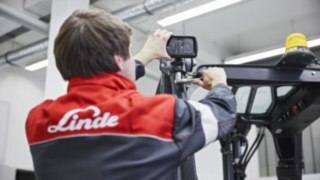
Linde Service Manager - Get the App today!
The Linde Service Manager App supports the communication process between you and the Linde Service network. The App offers the following features to name but a few:
Service requests - Send your requests quick and easy. Attach pictures of damage, track the request status
Fleet management overview - View all your trucks in a compact way and follow their status in real time
Calendar and maintenance plan - View all engineer visits and check the next maintenance date and legal visit
Your fleet data will be provided individually for your company. Therefore, the access to your data requires a Username and Password to be generated. Contact us using the chat function at the bottom of the screen to find out more.
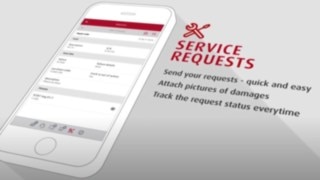
Complete Peace of Mind
Preventive to minimise failure and repair costs
Ideally, industrial trucks should not require repairs in the first place. After all, apart from damage due to accidents, most repairs on warehouse handling equipment or forklift trucks are due to continuous use, i.e., due to entirely normal wear and tear. In particular, major repairs can be avoided, if wear is promptly detected, minimised, and prevented.
Matching servicing intervals
Detect damage and leaks, check the brake system and the steering system, replace the hydraulic oil: As part of corresponding servicing contracts, Linde service technicians can promptly identify wear and take the necessary measures. The servicing intervals are defined by the manufacturer's specifications and are adapted to the specific truck in the event of an increased workload. The Linde service team coordinates the servicing deadlines with the regular safety checks, such as emissions tests. This means that companies can also satisfy the legal requirements, all in a single step.
Seamless check thanks to state-of-the-art diagnostics
Powerful control technology, as used in the automotive industry, also allows industrial trucks to be analysed quickly and reliably. In addition to regular maintenance, this also allows the Linde service technician to suggest preventative measures to avoid costs for unplanned failures and short-term repairs.
Regular servicing ensures that all forklifts are operational for the long term, and that downtimes and repair costs are reduced.
Comprehensive and straightforward: Minimise the risk of failures with maintenance contracts
Anyone wanting to have as little to do with servicing and repairs as possible, while simultaneously wanting maximum truck availability, will want a full service contract. This lets you place all the necessary activities, from planning and coordination through to professional implementation and seamless documentation, into the professional hands of Linde service employees and highly qualified service technicians. Regardless of whether it relates to maintenance deadlines, repairs, the procurement of spare parts or safety checks, the full service contract comprehensively covers all the necessary maintenance measures.

Tailored to customers' requirements
Companies can select the right contract from a range of variants depending on their requirements. Moreover, there are numerous options to customise the full service contract to suit specific customer wishes, such as defined response and repair times, permanent assignment of service technicians for on-site fleet management, and the management of the entire battery management system. Full service contracts are worthwhile irrespective of the number of industrial trucks in use. After all, seamless operation and the lowest possible internal expense for servicing and repairs lie at the heart of every efficient operation.
Optimal service planning
Continuous servicing enables a significant reduction in costly repairs. However, if repairs do still arise, Linde effectively integrates their planning in the production process in advance and logically combines service jobs so that downtimes are kept to a minimum. This also allows regular servicing activities to be coordinated with the prescribed statutory checks, such as the FEM 4.004 check, which is a requirement throughout Europe. This, in turn, reduces downtimes and saves costs.
Benefits of manufacturer maintenance at a glance
- Maximum truck up time
- Truck operating as it was designed to
- Preventative maintenance (repairs increases availability)
- Reduction in safety issues
- Compliance with warranty conditions
- Full service history
- Improved cosmetic appearance of the fleet
Check before starting work
Every single forklift operator in a company can make a simple, yet important contribution to ensure seamless operation. After all, if operators check their industrial trucks before starting work, this not only improves safety, it also helps to maintain the optimal operating status of the trucks. Here you can find an overview of all the necessary checks for electric forklifts and IC trucks.
-
Chassis, bodywork & fittings
-
Engine / battery and chargers
-
Hydraulics and fluids
-
Electrics
-
Load lift system
Chassis, bodywork & fittings
- Check that the adjusting mechanism on the steering column is secure
- Check the condition of the operator‘s seat and seat belt: secure, excessive wear, damage
- Check the tyres and rims: profile, external damage, air pressure
- Check drive system and steering: smooth control, responsive to command
- Test service brake and parking brake
- Check the level in the washer system reservoir
Engine / battery and chargers
- Diesel: Check fuel level, do not overfill
- LPG: Check fill level in the LPG system. Check that the console of the LPG tank is correctly positioned
- LPG: Carry out a visual and odour inspection on the LPG system
- Check engine oil level, caution when hot
- Check cooling fluid level, never when hot
- Check truck for leaks
- Check the state of charge of the battery
- Check the electrolyte level, topping up with distilled water if necessary
- Check that the battery poles are tightened, cleaned, and lubricated
- Check the battery and charger connections
Battery and chargers
Hydraulics and fluids
- Check the oil level in the hydraulic system
- Check the truck for leaks (visual control), e.g. transmission, steering, working hydraulics
Electrics
- Check the electrical system, e.g. lights, beacons, warning units, wipers
- Trucks with LSP: make sure that correct attachment is selected in LSP.
Load lift system
- Check fork arms and fork latches: correctly fitted, undamaged
- Check that the attachments are working correctly. Observe the manufacturer‘ s operating instructions.


